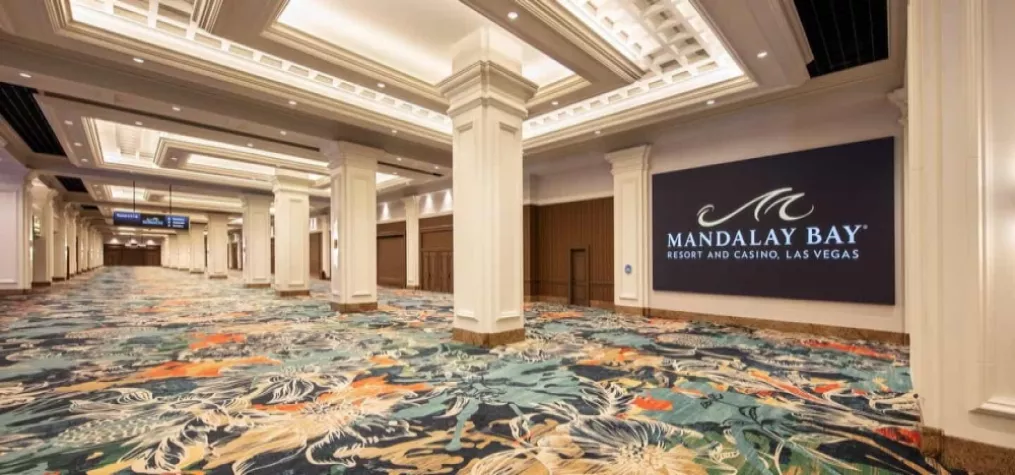Event organizers are taking the sustainability movement more seriously than ever before. That decision is good business. So is engaging with stakeholders.
In mid-April, the Events Industry Council is expected to release a refresh of its Sustainable Event Standards for the industry. Event organizers should take up the EIC SES, make meaningful changes now and be on the side of right.
As reported in the Wall Street Journal on January 18: “In his annual letter to CEOs, BlackRock CEO Larry Fink said executives need to express their values. ‘They don’t want to hear us, as CEOs, opine on every issue of the day, but they do need to know where we stand on the societal issues intrinsic to our companies’ long-term success,’ said Fink. ‘Stakeholder capitalism is not about politics. It is not a social or ideological agenda. It is not ‘woke.’ It is capitalism, driven by mutually beneficial relationships between you and the employees, customers, suppliers, and communities your company relies on to prosper,’ he said.”
The next day, the Wall Street Journal reported that Exxon “…has set a goal to reduce or offset greenhouse-gas emissions from its operations to zero by 2050, as investor and public pressure mounts on oil producers to respond to climate change.” The Journal continued, “With Exxon’s announcement, all of the largest Western oil companies have now made so-called net-zero commitments to reduce or offset greenhouse-gas emissions. BP PLC and Royal Dutch Shell PLC did so in 2020, and in time the largest U.S. oil companies followed suit. Chevron Corp. said in October it had set a net-zero aspiration.”
All of this is on the heels of COP26 held in November of last year, when many (more than 300) event organizers and supply chain entities took the Net Zero Carbon Events pledge to support the goal of net zero greenhouse gas (GHG) emissions by 2050.
More and more companies both within and outside of the events industry are making the Net Zero Carbon pledge. Do you really want to be the CEO of an event business not engaging with your stakeholders or getting on the same page regarding this issue? I think not. Event organizers need to be able to walk the talk. As the Journal reminded us in the reporting on Fink’s letter to investors, there is an “abundance of disruptive startups trying to topple market leaders.” If you are an organizer, what side of right to you want to be on?
Ready to get started?
My recommendation would be to work with your association such as IAEE, PCMA, SISO, UFI, etc. The Joint Meetings Industry Council hosts the Net Zero Carbon Events website – find out what resources they have to help you!
Otherwise, grab a standard and conduct your own gap analysis. Where do you stand and what is the plan to improve your standing?
For example, take the ISO 20121 (sustainable management system) and give it a read. Obtain the Event Industry Council Sustainable Event Standard for you category: Event organizer, Accommodation, Venue, Destination, Food & Beverage,Audio-Visual and Production or Exhibition. Have a read. Last, obtain the UN Sustainable Development Goals. From these documents, begin to plan steps for your organization. What do you need to do to fill in the gaps?
For each category within the EIC SES, you will find things that can be done quickly and cost-effectively. Easy wins! You only need 50 points to achieve the minimum level of certification. Also, choose suppliers with existing EIC SES certifications or comparable certification programs.
You will need set benchmarks to begin. Measure and track your Scope 1, 2 and 3 GHG emissions according to industry best practice. Consider how you will start to track:
1. Number of Participants (attendees, exhibitors, speakers, media, employees)
2. Who is coming by plane:
- Number of short-haul flights (up to 3h)
- Number of medium-haul flights (3-6h)
- Number of long-haul flights (more than 6h)
*Please note that cutting attendance at physical events to give the impression that carbon emissions are being reduced is not the answer. Organizers need to be able to demonstrate that their events reduce carbon emissions by gathering folk to conduct business in one spot at one time, rather than people having to fly on multiple short, mid- and long-haul flights to do business.
3. Number of people arriving by car:
- Average distance travelled (car)
4. Number of persons travelling by public transport:
- Average distance travelled (public transport)
5. From the food and beverage supplier, ask for tracking of the number of:
- meals, not vegetarian
- vegetarian meals
- snacks
- water/soft drinks
- coffee
- tea
- wine
- beer
Ask what was consumed, what was left over and what happens to the leftovers?
6. From the waste hauler supplier, ask for tracking of the weight of:
- waste to landfill (kg)
- recycling (kg)
- compost (kg)
Consider this: the Net Zero Carbon Events platform is a public square where the events industry can lay their pledge bare. It is up to the stakeholders to continue to drive progress and hold to the fire the toes of those who pledge. If the pledge is only lip service, stakeholders will find alternate solutions or providers. Those who do not pledge will be left behind. The risk to the brand to get this wrong is too great now.
For every company that tries, there are no losers – it is a journey and through trial and error and the experience of others, we see continuous process improvement. The losers are the ones sitting on the sidelines, waiting. Don’t be one of them. Be on the right side!
Don’t miss any event-related news: Sign up for our weekly e-newsletter HERE and engage with us on Twitter, Facebook, LinkedIn and Instagram!



Add new comment